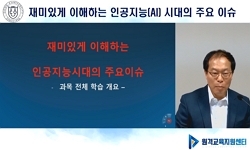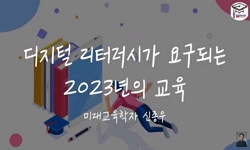Initially driven by the desire to simulate human thinking, artificial intelligence (AI) technology is developing fast thanks to rapid improvement of computer hardware and artificial neural networks. It is generally expected that AI will bring many pos...
http://chineseinput.net/에서 pinyin(병음)방식으로 중국어를 변환할 수 있습니다.
변환된 중국어를 복사하여 사용하시면 됩니다.
- 中文 을 입력하시려면 zhongwen을 입력하시고 space를누르시면됩니다.
- 北京 을 입력하시려면 beijing을 입력하시고 space를 누르시면 됩니다.

인공지능 기술이 인간의 인식에 미치는 영향에 대한 고찰 - 빌렘 플루서의 인코딩 개념을 중심으로 = An Epistemological Approach to Artificial Intelligence - Focusing on Vilé́m Flusser‘s Encoding
한글로보기https://www.riss.kr/link?id=A108957551
-
저자
이진욱 (건국대학교)
- 발행기관
- 학술지명
- 권호사항
-
발행연도
2024
-
작성언어
Korean
-
주제어
Vilé́m Flusser ; artificial intelligence (AI) ; digital code ; encording ; digital literacy ; 빌렘 플루서 ; 인공지능 ; 디지털 코드 ; 인코딩 ; 디지털 리터러시
-
등재정보
KCI등재
-
자료형태
학술저널
-
수록면
139-160(22쪽)
- DOI식별코드
- 제공처
-
0
상세조회 -
0
다운로드
부가정보
다국어 초록 (Multilingual Abstract)
This study attempts an epistemological approach to AI from the angle of code transition discussed in the media philosophy by Willem Flusser. As the Industrial Revolution replaced human labor with steam engines and related technologies, AI is replacing human intelligence in the course of the digital revolution today. In this study, the transition of picture codes to letter codes to digital codes and the change in human cognitive abilities from imagination to conceptual thinking to new imagination will be compared in the context of increasingly disappearing or minimizing historicalness.
Initially driven by the desire to simulate human thinking, artificial intelligence (AI) technology is developing fast thanks to rapid improvement of computer hardware and artificial neural networks. It is generally expected that AI will bring many positive changes to our lives, but at the same time, it is also concerned that superintelligence that humans cannot control might rise and bring about ethical and technical problems. These conflicting views on AI made it one of the hottest research topics in many areas including philosophy. However, AI research in philosophy is still limited to its ethical aspect that studies on AI from various angles are warranted.
This study attempts an epistemological approach to AI from the angle of code transition discussed in the media philosophy by Willem Flusser. As the Industrial Revolution replaced human labor with steam engines and related technologies, AI is replacing human intelligence in the course of the digital revolution today. In this study, the transition of picture codes to letter codes to digital codes and the change in human cognitive abilities from imagination to conceptual thinking to new imagination will be compared in the context of increasingly disappearing or minimizing historicalness.
동일학술지(권/호) 다른 논문
-
세네카 위로 편지에 나타난 철학상담적 함의: ‘헬비아에게 보내는 위로’를 중심으로
- 동국대학교 동서사상연구소
- 김진아
- 2024
- KCI등재
-
심성의 여정과 무의식 속 해방으로서 헤르만 헤세의 『데미안』
- 동국대학교 동서사상연구소
- 정윤길
- 2024
- KCI등재
-
앙드레 바쟁의 뉴미디어론에서 TV가 가지는 존재론적 위상
- 동국대학교 동서사상연구소
- 신양섭
- 2024
- KCI등재
-
에픽테토스와 장자의 자유론 - 프로하이레시스(prohairesis)와 안명(安命) 개념을 중심으로 -
- 동국대학교 동서사상연구소
- 제갈건
- 2024
- KCI등재




 KCI
KCI KISS
KISS






